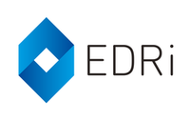A restriction on technological restrictions
The right to install other software on your computing devices
Safecast is a global project to map radiation data from around the world and release this information openly. When the project just started out, they used modified hardware, together with their own custom software and a few clever tweaks, to allow anyone to participate in the project. This kind of ingenuity, the ability to re-purpose or adapt existing technology by replacing or supplementing its software, should be permitted and encouraged by the law. In the example of Safecast, fortunately nobody prevented them from being innovative.
But all of us depend on the possibility to install or replace programs that we use every day, to increase our security, privacy or convenience -- or just because we happen to like using a different program on our laptop, tablet, phone, router, television, car, or on other devices.
Today, on the International Day Against DRM, the undersigned organisations are calling on lawmakers to safeguard the right to tinker for everyone. To make sure that the owner of every device is allowed to replace or supplement the software in that device if they so choose, thereby empowering owners to control their own property. Many manufacturers today add technological restrictions that prevent device owners from changing their devices, or having someone do so for them. This can be in breach of the licences on the devices (as with Free Software/Open Source Software licences, which grant the rights to use, study, share, and improve the software for any purpose). It is clear that any right to tinker must also be coupled with a legal provision that prevents technological restrictions of the same right.
To successfully guarantee that device owners are in control of their own technology, the following organisations ask that the right to tinker be guaranteed for everyone, and that technological restrictions that interfere with this right be limited by law.















